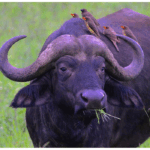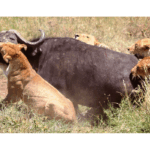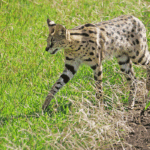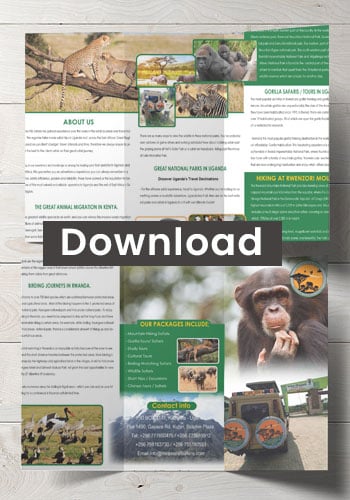Lions can also The King of the breasts prey on big five member in their habitat, in Africa the big five are lions, elephants, rhinos, buffalos and leopards. Mirama hills safari welcomes you to Ugandan savannah parks like Kidepo valley, Murchison Falls and Queen Elizabeth national parks for these creatures hunt and not fear see every herbivores animals has their food even the big five members.
Lions hunt either alone or in prides. In collaborative hunts, it is usually the lioness who initiates the kill. Lions stalk their prey and, when close enough, attempt a short charge on their prey, trying either to pounce on their target or knock it over.
Why do lions hunt buffalo because they are predators and Buffaloes are their prey. Lions are carnivores, which mean that they eat meat. Buffalo are herbivores, which mean that they eat plants. Lions typically hunt in groups, which makes them even more successful.
Lions also prey on other herbivores animals which includes; antelopes, zebras, wildebeest and other grassland animals. These animals are often larger and faster than an individual lion. By hunting together, lions are able to exhaust and kill their prey.
Lions kill their prey by breaking its neck or suffocating it by clamping their jaws around its throat.
The stomach is usually the easiest point of entry into the carcass, and this is the route most often taken by lions. It also gives them direct access to some of the most nutritious parts of the body, such as the kidneys and liver of the prey. Lions usually rest after an initial feed, lying a short way away from the carcass so that they can still defend their kill against scavengers.
In a short time vultures are certain to begin to arrive. The first are usually the white-backed vultures and then come the lappet-faced and others. Scavengers like hyenas and jackals will be attracted by the vulture activity and will patiently wait at a safe distance until the lions have had their fill. It can take over 24 hours before lions abandon their carcass and spectacular fights may occur among scavengers for the last scraps of food.
Another addition, “I won’t lie, but that young single male lion taking down that much larger Cape buffalo and then still launching one another attack when the herd came to assist is pretty damn impressive!” Buffaloes demonstrate remarkable solidarity and bravery in the face of danger.
Lions to prey on buffalo, even though this is very dangerous and often things do not go the lions’ way. It only works if the lions can isolate one individual away on its own. Several lions are a match for a buffalo, and if the whole pride joins in there will usually be steak for dinner.
Lions are the only big cats to live in family units called prides. Other big cats live solitary lives, except when breeding or raising cubs. A lion pride may include up to three males, a dozen females, and their young. Lionesses are the primary hunters, while dominant males are responsible for protecting the pride’s territory.
Another lion fact not commonly appreciated is that lions are not just hunters, but scavengers as well, often chasing smaller predators – like leopard & cheetah – off their kills that is why leopard uplift its prey up to tree branches to be hidden and eating it safe from lions. In some instances, up to 50% of a lion’s diet can come from scavenging rather than hunting live prey.
Lions are the biggest, and most social, of the African cats, living communally in prides. Pride leadership often shifts between several individual animals – male and female – but the social structure of the pride hinges around the bond between related lionesses, who collaborate in all tasks, from raising cubs to hunting.
Male lions come and go – often in spectacular battles over territory or individual dominance – but the pride cohesion remains unaffected, firmly under female control.
Lions have always had an association with royalty and leadership. Their power is reflected in their impressive size and the fact that their lifestyles allow them to sleep a lot – up to 20 hours a day. They are awesome animals, with males weighing up to 225kg and females up to 150kg. The lion’s average lifespan in the bush is probably around 15 years.








